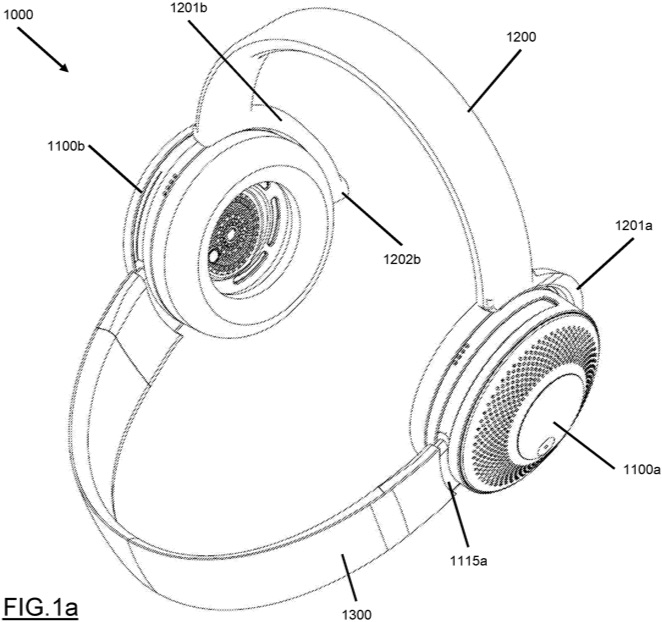Dyson wants to patent a new technology that combines the look of over-the-ear headphones with a built-in air purifier. The company’s goal is to fight off the adverse effects of air pollution in cities.
The patent was initially filed in July 2018 and was published on January 29. The headset does not entirely cover the mouth and nose, but still pumps through filtered air with a band. When not in use, the band can be folded away.

“By providing the air delivery outlet on the end of a conventional microphone arm, this head-worn purifier should be capable of providing more accurate delivery of purified air to the user’s nose and/or mouth than a neck-worn purifier,” the patent’s description reads.
While they look like headphones, they won’t be playing music to your ears. Instead, the headphone portion of the wearable purifier contains motors inside that controls the airflow. The motors spin at 12,000 rpm, which can draw in about 1.4 liters of air per second.

Dyson said in the patent that it hopes to make wearing air purifiers more “socially acceptable” to wear in public, rather than wearing a face mask that covers most of your face.
It’s not the first wearable air purifier that hopes to be more stylish and discreet in its design. At the Consumer Electronics Show (CES) in January, Ao Air debuted Atmos Faceware: A clear mask that goes across your face, covering your nose and mouth.
The mask includes fans inside that adapt to your breathing and clean air coming from the mask at about 240 liters per minute.
Both Ao Air and Dyson said that they are trying to solve the increasing levels of air pollution throughout the world.
“In locations with particularly high levels of air pollution, many individuals have recognized benefits of minimizing their exposure to these pollutants and have therefore taken to wearing face masks with the aim of filtering out at least a portion of the pollutants present in the air before it reaches the mouth and nose,” Dyson’s patent says.
Especially with the public’s increasing fear of contagious airborne diseases like the coronavirus, personal air filters might soon be a commonplace tech gadget.
Still, a patent doesn’t mean the technology will turn into an actual product. A Dyson spokesperson told Digital Trends that only some of their patents actually make it to the market.
“We’re constantly creating disruptive solutions to problems, which means we file a lot of patents — some of which make it to market, while others don’t. If and when a product is ready we’ll happily go through it but until then we don’t comment on our patents,” the spokesperson said.



